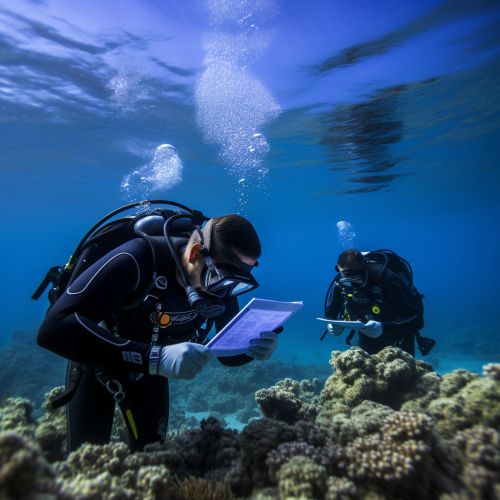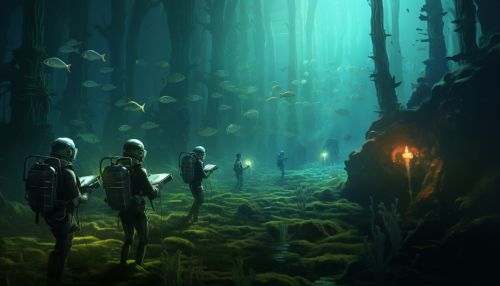Fisheries science
Overview
Fisheries science is the academic discipline of managing and understanding fisheries. It is a multidisciplinary science, which draws on the disciplines of oceanography, marine biology, marine ecology, and meteorology to attempt to provide an integrated picture of fisheries. In some cases new disciplines have emerged, as in the case of bioeconomics and fish pathology.


History
The history of fisheries science can be said to have started with the early work of fishermen and naturalists who observed and recorded the patterns of fish abundance and behaviour over time. This early work was largely descriptive and was not considered a rigorous science in the modern sense. However, it laid the foundation for the more systematic and quantitative approaches that were to follow.
Concepts and Techniques
Fisheries science involves the use of various concepts and techniques to understand and manage fisheries. These include population dynamics, stock assessment, monitoring and surveillance, and fisheries management strategies.
Population Dynamics
Population dynamics in fisheries is a branch of life sciences that deals with the study of short-term and long-term changes in the size and age composition of fish stocks, and the biological and environmental processes influencing them.
Stock Assessment
Stock assessment involves the collection and analysis of various types of fisheries data in order to estimate the population size and composition of a fish stock. This information is then used to predict the future state of the stock and to recommend sustainable fishing quotas.
Monitoring and Surveillance
Monitoring and surveillance in fisheries involves the systematic collection, analysis and interpretation of data to assess the state of a fishery. This can include data on catch rates, fishing effort, biological characteristics of the fish, and environmental conditions.
Fisheries Management Strategies
Fisheries management strategies are plans of action designed to achieve specific objectives in the management of fisheries. They can include measures such as fishing quotas, gear restrictions, closed seasons and areas, and the protection of critical habitats.
Challenges and Controversies
Fisheries science faces several challenges and controversies. These include the overfishing of many fish stocks, the impact of fishing on marine ecosystems, the effects of climate change on fisheries, and the social and economic implications of fisheries management decisions.
Overfishing
Overfishing is a major concern in fisheries science. It occurs when more fish are caught than the population can replace through natural reproduction. Overfishing can lead to the depletion or even extinction of fish stocks, with serious ecological and economic consequences.
Impact on Marine Ecosystems
The impact of fishing on marine ecosystems is another area of concern. Fishing can cause changes in the structure and function of marine ecosystems, affecting not only the target fish species but also other species and the overall health of the ecosystem.
Climate Change
Climate change is expected to have significant effects on fisheries. Changes in ocean temperature, salinity, and acidity can affect the distribution and productivity of fish stocks. Fisheries science is working to understand and predict these effects in order to adapt fisheries management strategies accordingly.
Social and Economic Implications
The social and economic implications of fisheries management decisions are a key aspect of fisheries science. These decisions can have significant impacts on fishing communities, the fishing industry, and the wider economy. Fisheries science therefore needs to take into account not only biological and ecological factors, but also social and economic considerations.
Future Directions
The future of fisheries science lies in addressing these challenges and controversies, and in developing more sustainable and resilient fisheries. This will require advances in our understanding of fish biology and ecology, improvements in our ability to assess and predict the state of fish stocks, and innovations in our approaches to fisheries management.
